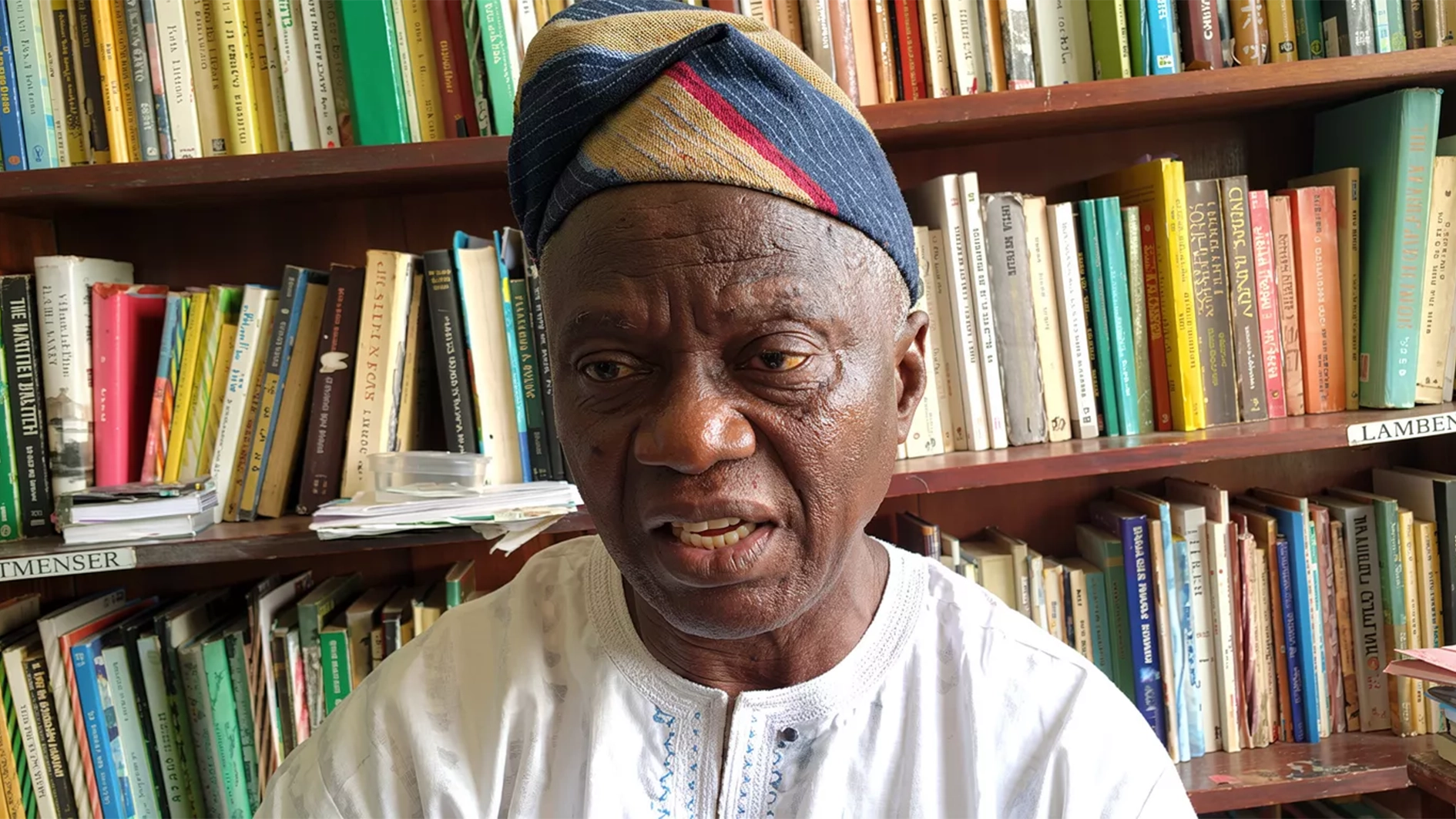 In this interview with Racheal Olatayo, Prosper Obed Chukwuemeka, a researcher in cancer biology, immunotherapy, and systems biology, speaks on how he utilizes both computational and experimental approaches to explore the complex interactions within the tumor microenvironment. Prosper’s work aims to uncover the mechanisms behind tumor resistance and enhance antitumor immunity. By combining data-driven insights with biological research, Prosper is contributing to the advancement of cancer treatments.
In this interview with Racheal Olatayo, Prosper Obed Chukwuemeka, a researcher in cancer biology, immunotherapy, and systems biology, speaks on how he utilizes both computational and experimental approaches to explore the complex interactions within the tumor microenvironment. Prosper’s work aims to uncover the mechanisms behind tumor resistance and enhance antitumor immunity. By combining data-driven insights with biological research, Prosper is contributing to the advancement of cancer treatments.
Can you tell us a bit about your research and what drives your passion for science?
I truly appreciate the opportunity to share my journey. To begin, health is the foundation of life—without it, everything else loses meaning. Cancer, in particular, stands out as one of the most devastating and intricate diseases affecting human health. The profound suffering it causes, coupled with the personal loss of a dear friend to leukemia at a young age, deeply shaped my resolve to tackle this challenge head-on. My research is centered on unraveling the complex interactions that drive cancer progression and resistance to treatment. By integrating systems biology approaches, I merge data-driven analyses with biological insights to uncover the underlying mechanisms of therapy resistance and identify new therapeutic targets. This holistic approach not only enhances our understanding of cancer but also paves the way for the development of more effective, personalized treatments. What drives me is the hope that my work can turn the tide for patients and their families, transforming the despair of a diagnosis into a future filled with possibilities and hope. Each discovery, no matter how small, brings us one step closer to making that vision a reality.
What are some of your most notable research contributions so far?
I’ve been fortunate to make contributions in various areas of cancer research and therapeutics. Some highlights include:
* Novel Candidate Inhibitors: I discovered a naphthyridine-based compound capable of disrupting the p53-MDM2/MDMX interaction, a key pathway frequently hijacked by cancer cells. This compound shows promise as a dual inhibitor and potential for targeting a crucial mechanism of cancer cell survival and could pave the way for novel therapeutic strategies.
* Cancer Vaccine Development: I designed a vaccine candidate targeting the Epstein-Barr Virus (EBV), which is implicated in several malignancies. This innovation could significantly reduce the global burden of EBV-associated cancers.
* Overcoming Drug Resistance: I designed novel cyclin-CDK6 inhibitors to combat resistance mechanisms in breast cancer, advancing targeted therapy approaches.
How has your work been recognized within the scientific community?
My research has been published in nearly 20 peer-reviewed journals and cited over 190 times, highlighting its influence across a broad range of scientific disciplines. In addition to my primary research focus, my work has contributed to addressing critical challenges in virology, such as COVID-19, malaria, and metabolic disorders like diabetes, demonstrating the broader relevance of my findings. I have also had the privilege of serving as a peer reviewer for prestigious journals, including Computers in Biology and Medicine, Journal of Biomolecular Structure and Dynamics, Medical Hypotheses, and Journal of Molecular Modeling. These roles reflect my commitment to the scientific community and my active engagement in advancing knowledge. Furthermore, I am honored to be a member of the American Association of Immunologists (AAI) and Sigma Xi, the Scientific Research Honor Society, which acknowledges my dedication to the advancement of scientific discovery.
What challenges or opportunities do you see in the future of cancer research?
One of the most significant challenges in cancer research is the inherent complexity of the disease and its capacity to develop resistance to treatments. However, this complexity also opens up exciting opportunities for innovation. Advances in systems biology, single-cell RNA sequencing, and artificial intelligence are offering unprecedented insights into how tumors grow, evade the immune system, and resist therapies. However, I believe that transformative progress will come from increased collaboration and interdisciplinary efforts. By integrating computational modeling, experimental biology, and clinical research, we can develop more personalized and effective cancer therapies. My focus is on contributing to this collaborative effort by exploring ways to optimize various therapeutic modalities—not only to directly target cancer cells but also to modulate the immune system in a way that sustains long-term control or even cure.
What’s next for you in your scientific journey?
As a doctoral researcher at the University of Pittsburgh School of Medicine and the Center for Systems Immunology, my research is currently focused on understanding how immunotherapy, particularly combination therapies like anti-PD1 and anti-LAG3, influences Treg dynamics within the tumor microenvironment. Tregs, which have an immunosuppressive role, can hinder effective antitumor immunity, so my work aims to explore how these therapies can modulate Treg behavior to enhance immune responses against tumors. Looking ahead, I plan to expand my research by investigating the cross-talk between Tregs and effector T cells, examining how these interactions differ across cancer types, and exploring how they can inform our understanding of unwanted immune interactions that limit tumor clearance. Additionally, I am committed to mentoring the next generation of scientists and promoting collaborative efforts that bridge basic research with clinical applications. Ultimately, my goal is to help translate cutting-edge scientific discoveries into patient-centered therapies that improve outcomes in cancer treatment.
What advice would you give to aspiring scientists and researchers?
First and foremost, stay curious and resilient. Science is a journey filled with challenges, but it’s also incredibly rewarding. Don’t be afraid to ask big questions and pursue interdisciplinary approaches. Collaboration is key—seek out diverse perspectives and be open to learning from others. Finally, remember the impact your work can have on humanity. Let that purpose guide you through every experiment, setback, and discovery.






